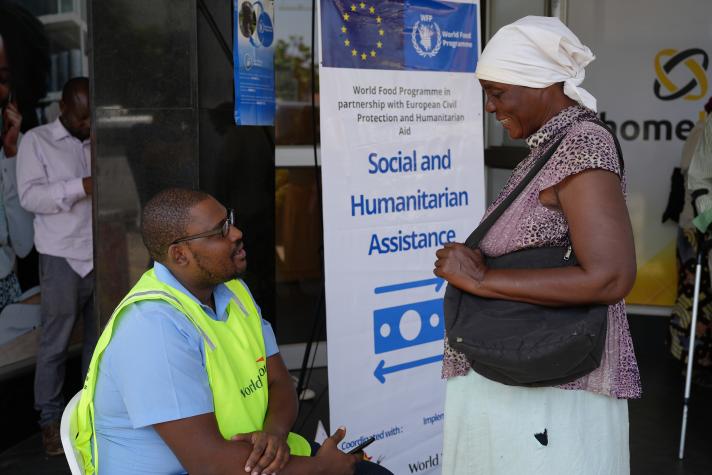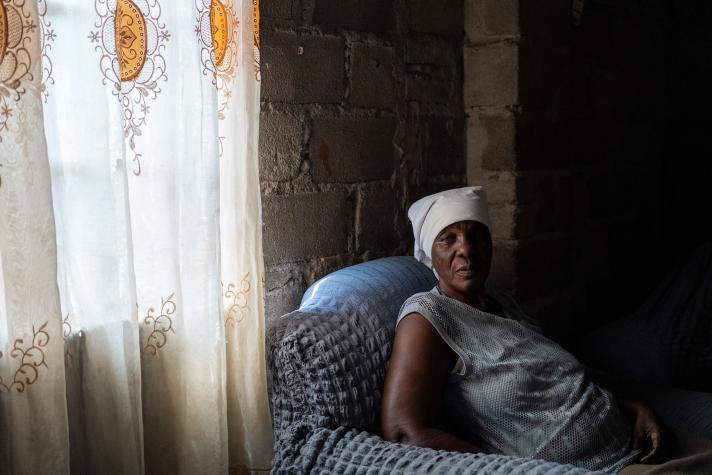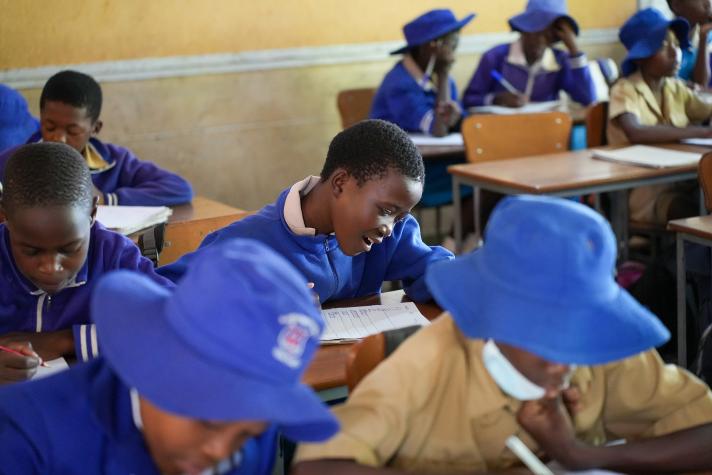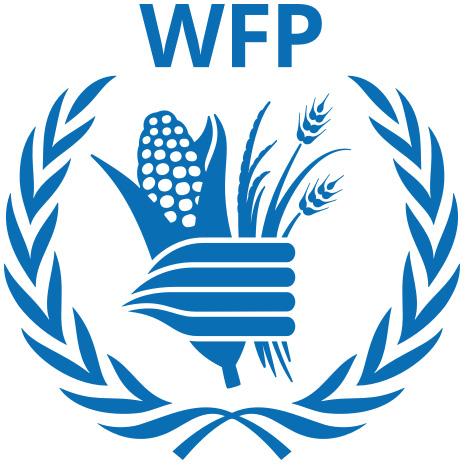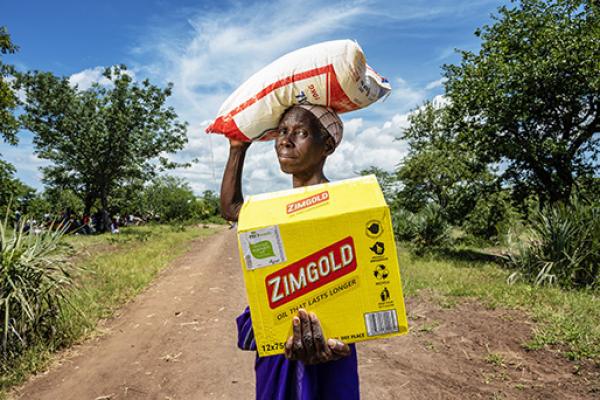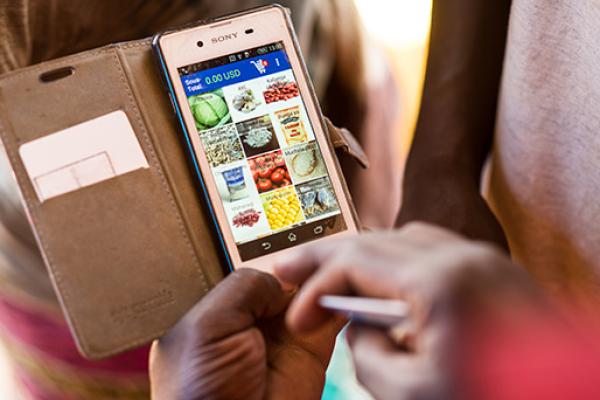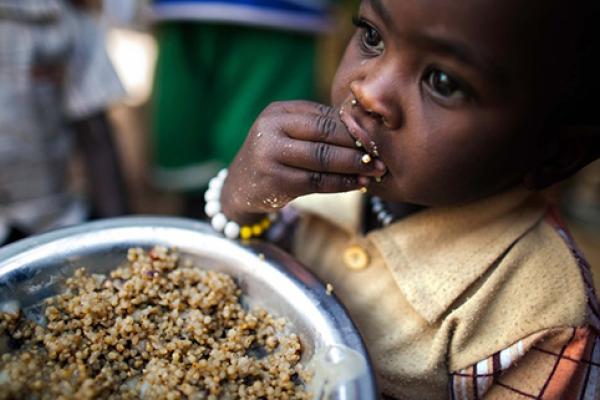The economic fallout of COVID-19, rising energy prices, Russia’s war of aggression against Ukraine, droughts and floods have all contributed to increased food insecurity around the world. In Zimbabwe, with funding from the EU, the World Food Programme has enabled families in to buy food, amid rising prices and inflation.
Egnetta is a woman in her sixties – a mother, grandmother and great-grandmother - heading a household of 20 in southwestern Zimbabwe. Looking after her big family leaves little time for seeking paid employment.
“I’m the parent here, I’m responsible for everything,” she says. “It’s not an easy job for a single mother and a widow to be the breadwinner of such a big family.”
Up to 1/3 of Zimbabweans in towns and cities are unable to afford a nutritious diet – food tends to be available but not affordable. Cash support from the World Food Programme (WFP) helps. It enables people to buy food and other essentials at a time when inflation and soaring prices otherwise restrict people’s access to money, playing into the hands of food insecurity.
The family cultivates a small field of maize, but this is near enough to meet everyone’s needs. The cost of firewood, gas, electricity, school fees – and, of course, food – makes day-to-day living next to impossible. No matter how family members have tried to combine their various income streams, they often fall short of ensuring there is enough food on the table for all.
Only 8% of children in Zimbabwe’s urban hubs get the minimum acceptable level of quality and quantity food that they need.
“Life used to be better … but [now the Zimbabwean dollar] can't buy as much,” says Egnetta. “We could go for 2 or 3 days without food. The grandchildren would survive on porridge, and the adults would skip meals.”
WFP, with the support of donors including the European Union, is working in urban environments around Zimbabwe to assist people who share Egnetta and her family's circumstances. Having enrolled in a WFP-backed programme, Egnetta receives a mobile-money stipend every month. She uses this to buy food and other necessities.
“We buy maize, rice, and cooking oil, and vegetables like tomatoes, onions and paprika,” she says. “Some of my neighbours are widows like me, and they raise poultry, so I buy chickens from them. If there’s money left over, we save it until we need to buy food again.”
With the burden of meeting her family's food needs alleviated by this support, Egnetta can focus on her family's education and future.
“I am not [formally] educated, but I know the importance of school,” she says. “My father only educated my brothers. As young girls, we were never given a chance to go to school. I had to labour to earn a living. I want to see my grandchildren succeed and have a better life than what I experienced.”


